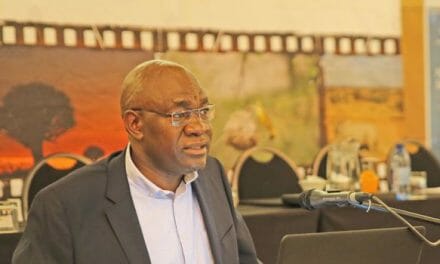
EU launches funding to combat Illegal Wildlife Trade in the KAZA areas

On the occasion of the Giants Club Summit held in Kasane, Botswana last week, the Ambassador of the European Union to Botswana and SADC, Alexander Baum, announced a project estimated at €1.5 million to address the deteriorating wildlife crime situation in the Kavango-Zambezi (KAZA) Trans-Frontier Conservation Area (TFCA).
The partner countries on the KAZA TFCA are Angola, Botswana, Namibia, Zambia and Zimbabwe.
This project, which is being implemented by the UK-based NGO Space for Giants and a local NGO, Tlhokomela Trust, will strengthen wildlife law enforcement and cross-border collaboration in transboundary ecosystems by creating a trans-frontier wildlife law enforcement network of highly skilled individuals in the Kavango-Zambezi Trans-Frontier Conservation Area.
The project was awarded following a call for proposals launched under the EU Cross-Regional Wildlife Conservation programme in Eastern and Southern Africa and the Indian Ocean.
Through this funding, a trans-frontier wildlife law enforcement training facility with a holistic training curriculum for training the wildlife law enforcement community will be established in Boro, near Maun.
The curriculum will include best practices in intelligence gathering, wildlife ranger tactical and specialist operations, wildlife crime investigation, and wildlife crime prosecution and sentencing in order to ensure that the entire criminal justice chain in each country is skilled to the highest levels for tackling wildlife crime. A high performance satellite communications network will be built to enable and enhance trans-frontier coordination on wildlife crime law enforcement.
The project is expected to create a highly effective and collaborative trans-frontier wildlife law enforcement community as a model for Illegal Wildlife Trade management across other African TFCAs. As a result, by 2021, the project expects to see at least a 50% reduction in the illegal killing of elephants, verified by records, and a significant improvement in conviction rates and penalties for those prosecuted for wildlife crime.
This intervention should result in an improved standard of wildlife law enforcement within the KAZA area, supported by a network of mobilised community groups effectively participating in wildlife law enforcement, alongside the private and public sector actors.












































